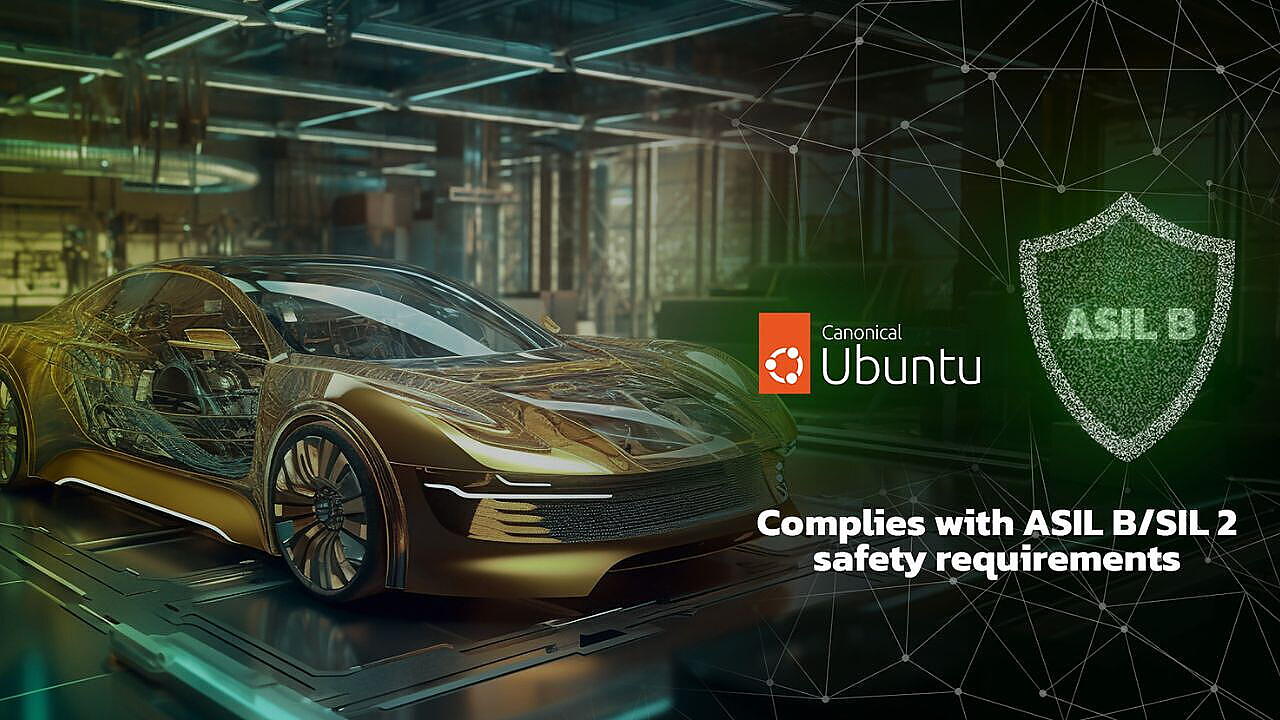
Elektrobit has unveiled EB corbos Linux for Safety Applications, the first open-source operating system (OS) designed to meet automotive functional safety standards.
The new application meets the ISO 26262 ASIL B and IEC 61508 SIL 2 safety standards, enabling the automotive industry to use free open-source software (FOSS) in critical high-performance computing (HPC) areas. This allows for the support of advanced functions such as driver-assistance systems (ADAS) and autonomous vehicles (AV), which previously faced restrictions due to stringent safety requirements. Moreover, the OS can also be applied to safety-critical domains in other sectors, including healthcare, machine engineering, and energy.
EB corbos Linux for Safety Applications provides up to 15 years of maintenance, establishing a new benchmark for industry security and reliability. This solution significantly reduces time to market by up to 50% through accelerated development cycles, offering substantial cost savings. Its open-source framework enhances transparency, flexibility, and security, setting it apart from proprietary software options.
Current Challenges
Elektrobit aims to address numerous challenges in the automotive sector with the introduction of EB corbos Linux for Safety Applications. These challenges include fragmented architecture leading to high software complexity, limited scalability and usability, reliance on hardware, and increased testing requirements. However, the industry stands to benefit from reduced software variants and versions, streamlined software harmonisation and complexity management, modularisation and separation from hardware, and the adoption of cloud-first workflows and virtualisation.

Elektrobit's research highlights the automotive industry's pressing need for assistance in constructing software-defined vehicles (SDVs). This encompasses various aspects such as cost reduction, customisation, community support, compliance with automotive standards, and support for advanced features, safety, security, and long-term maintenance. End-users of cars also anticipate enhancements in navigation, maintenance, safety, and security. Notably, safety and security updates command the highest willingness to pay across key global markets, including China, India, Germany, South Korea, Japan, and Brazil. To meet these demands effectively, Elektrobit has introduced EB corbos Linux, aiming to leverage open-source software solutions for industry-wide advancement.
Why Linux?
Speaking to Mobility Outlook, Jens Petersohn, Director, Elektrobit, said Linux is arguably the most viable open-source platform, receiving substantial development efforts and widespread support from leading manufacturers across various processor technologies. It stands out as the largest and fastest-evolving operating system project, both open-source and proprietary, and has proven itself across many industries, including embedded systems. Given its extensive adoption and proven track record, Linux is a logical choice for the automotive industry, which has only recently begun to embrace this technology, he mentioned.
Ensuring Automotive SafetyTo address cybersecurity risks in high-performance computing, Elektrobit adheres to the ISO 21434 cybersecurity standard, which outlines essential processes. 'We proactively monitor for Common Vulnerabilities and Exposures (CVE) to stay ahead of potential issues,' he explained. Although Linux frequently encounters issues, they are generally theoretical and have not led to actual exploits. These are vulnerabilities identified in the source code, which means Linux operates in a proactive environment. Unlike many closed-source solutions, the open-source community promptly reports issues, allowing developers to resolve them before they pose a significant threat. This approach has been demonstrated across various industries to be highly effective in enhancing cybersecurity, he added.
Petersohn mentioned that Argus, a subsidiary of Elektrobit, specialises in Intrusion Detection Management Systems (IDMS), which can be integrated with its operating systems to enhance vehicle security. According to him, it is highly advisable to implement an IDMS in conjunction with the basic security features of the operating system. This allows the customers to proactively tackle security breaches as soon as an attempt to penetrate the system is detected, Petersohn added.

Advantage Elektrobit
Petersohn explained that Elektrobit offer the basic Linux distribution software free of charge, deriving no direct benefit from it. The business model centres around providing added value beyond this. While the operating system itself is free for anyone to download and use for any purpose, it comes without warranties or guaranteed liability. Our revenue is generated through additional proprietary software solutions, a range of services, and product support. “This approach allows Elektrobit to gain from offering this solution,' he added.
Opportunities For Elektrobit India
Satish Sundaresan, Managing Director India & Chief Strategy Officer at Elektrobit, shared insights into the strategic direction for Elektrobit in India. Although the India centre did not participate in developing EB corbos Linux, there are significant opportunities planned for the Indian market, particularly in the electric two-wheeler and passenger car segments.
'Our goal is to champion Linux as a viable alternative for all our customers, introducing open-source as a core concept and, crucially, adding value to it specifically for the two-wheeler and electric vehicle (EV) sectors,' Sundaresan said. He also mentioned ongoing discussions with an electric car manufacturer, which had initially dismissed Linux but is now facing delays. 'This situation has opened an opportunity for us to step in and offer our support from a market engagement perspective,' he added.
Also Read:
Elektrobit Usurps Prime Position In Shaping Digital Future Of Mobility